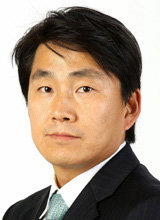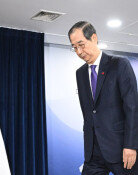Coronavirus crisis takes a toll on Korean-Americans
Coronavirus crisis takes a toll on Korean-Americans
Posted March. 21, 2020 07:44,
Updated March. 21, 2020 07:44

With COVID-19 cases in New York City exceeding 7,000 as of Friday, the city has practically become a ghost town. The streets in Manhattan are empty as the city closed restaurants and bars from 8 p.m. on Monday (local time). New York Gov. Andrew Cuomo ordered businesses to have only half their employees at work on Wednesday and mandated one day later that no more than 25% of employees can be in the workplace.
Self-employed Korean-Americans in the city are struggling to make ends meet. Korean restaurants in Koreatown, centered on West 32nd Street in Manhattan, are busy creating new delivery and to-go menus to survive the coronavirus crisis. The Korean restaurants “Keunjip” and “Wonjo” are joining forces to offer a delivery service together. The “Samwon Garden” is offering a “Care Package” service, where the food is delivered with a free hand sanitizer, and the name of the staff who cooked the food and his/her body temperature written on the container.
Kim Wan-gyo, 42, who owns a tour agency in New York, goes to his office every morning although no tourists can be seen in the city anymore. His company’s revenue fell 70 percent year-on-year last month and reported a loss this month. There are nearly no new reservations but only requests for cancellations and refunds. Kim felt like his business, which he established in his late 30s, and the livelihoods of his 20 employees were on the edge.
To keep his company afloat and protect his employees, Kim initiated the first stage of his emergency plan on Thursday. First of all, he gave paid leaves to his interns on condition that they work one more day when things get better. He ordered all employees, except for team leaders, to work from home. “These days, having a Plan B is not enough,” said Kim. “I need to extend my backup plans all the way to Plan Z.”
What Kim does at his empty office is preparing new projects for the second half of the year, when the COVID-19 outbreak is expected to subside. In particular, he is devising a strategy of diversifying his target markets to various parts of the world. He realized he needs a diversified business portfolio so that losses in one region can be offset by gains in others.
The first stage of Kim’s emergency plan will continue until May. Kim said he hopes Trump’s $1.3 trillion spending will pass the Congress soon, adding that it would be really helpful if the government temporarily exempts businesses from payroll tax. “Having to pay the payroll tax worth 20,000 dollars per month when the company is not making any money leaves me no other option but to dismiss my employees,” said Kim.
Kim said he is taken aback every time President Trump calls COVID-19 a “China virus.” He is afraid what might happen if financially distressed people take their stress and fury out on certain races. This is the biggest crisis for Kim’s company although he has gone through many difficulties in the past, including the MERS outbreak in 2015. “The beginning was the most painful for all crises,” Kim said. “I’ll hold out until spring no matter what.” The two million Korean-Americans would feel the same as Kim.







